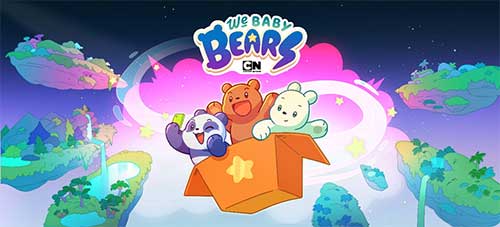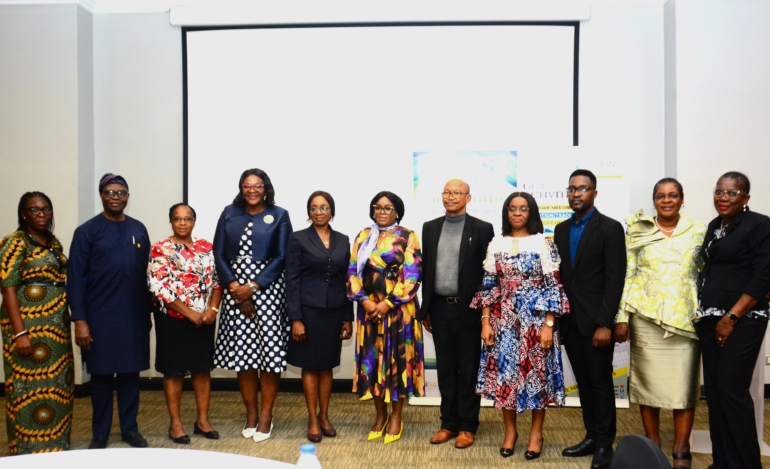Children learn through a variety of experiences as they grow. Some of these experiences, especially educational cartoons, are often specifically tailored to boost their literacy, maths, science or sociocultural skills, while others are purely entertainment driven.
Below is a collection of highly educational cartoons and what they can help teach your children.
1. Dora the Explorer
Dora, the Explorer, is an animated educational television series for young children, primarily preschoolers.
It is regarded as an educational cartoon because it teaches children basic skills such as problem-solving, math, and language.
The series emphasises cultural diversity and introduces Spanish vocabulary to its young audience.
Common Sense Media rates Dora the Explorer as appropriate for children ages three and up.
2. Sesame Street
Sesame Street is one of the educational cartoons that teach children about letters, numbers, and social-emotional skills.
According to a study published in the Journal of Educational Psychology, watching Sesame Street can improve children’s literacy and math skills.
3. Bubble Guppies
Also, Bubble Guppies is an educational cartoon aimed at preschoolers that teaches children about science, math, and social-emotional skills.
The show follows a group of six guppies who attend school and explore their underwater world.
Each episode focuses on a topic or theme, such as animals, plants, or the ocean.
One of the unique features of Bubble Guppies is that it incorporates music into each episode, with the characters often breaking into song and dance.
The music is catchy and upbeat, which can help children learn and retain new information.
According to a study published in the Journal of Children and Media, watching Bubble Guppies can improve children’s science knowledge and problem-solving skills.
Another study published in the Journal of Applied Developmental Psychology found that watching Bubble Guppies can improve children’s understanding of social-emotional concepts, such as empathy and self-awareness.
4. Wild Kratts
Also, here is one of the amazing educational cartoons in our list.
Aimed at children aged 6-8, it teaches kids about the natural world and animal science.
The show follows the adventures of real-life brothers Martin and Chris Kratt as they explore different ecosystems and encounter various animals.
One of the unique features of Wild Kratts is that it incorporates real-life animals and their behaviors into the cartoon.
Furthermore, the show uses live-action footage of animals, which is then animated to create a seamless blend of live-action and cartoon elements.
This approach helps to make the show more realistic and engaging for kids.
Regarding educational content, Wild Kratts focuses on teaching children about animal science and ecology.
Each episode focuses on a different animal or group of animals, such as cheetahs, kangaroos, or sharks.
5. The Magic School Bus
The Magic School Bus is a beloved and long-running educational cartoon that has helped countless children learn about science in fun and engaging way.
According to the Journal of Children and Media, watching The Magic School Bus can improve children’s science knowledge and motivation to learn about science .
The cartoon series follows the adventures of a class of students and their eccentric teacher, Ms. Frizzle.
Basically, each episode of the show centers around a particular science concept or topic, such as the solar system, the human body, or the water cycle.
Ms. Frizzle, who is known for her quirky personality and love of adventure, takes her students on field trips in a magical school bus that can transform into various vehicles, such as a spaceship or a submarine.
Along the way, the students learn about the scientific concepts related to the field trip, such as gravity, photosynthesis, or the water cycle.
6. WordGirl
WordGirl has been praised for its educational content. Also, it has won multiple awards, including a Daytime Emmy for Outstanding Writing in Animation.
It teaches children the importance of language and literacy skills in a fun and engaging way.
WordGirl follows the adventures of a young superhero named WordGirl.
She uses her knowledge of words and language to fight crime and protect her city from villains.
The show aims to teach children vocabulary and language arts in a fun and engaging way.
In addition to teaching vocabulary, WordGirl also emphasises the importance of reading, writing, and communication skills.
The show uses humour and entertaining visuals to engage children and make learning fun.
7. Super Why!
The show follows a team of storybook characters who solve problems using their reading abilities, teaching children the importance of reading, vocabulary, and critical thinking.
The main character of the show is a boy named Wyatt. He has the power to turn into Super Why, a superhero who can jump into books and solve problems using his reading abilities.
Each episode of Super Why! revolves around a problem that the team must solve by reading a book.
Along the way, the characters interact with the audience, asking them to help identify letters, words, and rhymes.
It also encourages children to participate in the learning process.
8. Octonauts
Octonauts is a British animated television series that follows the adventures of a team of underwater explorers called the Octonauts.
The show combines science fiction and marine biology elements, teaching children about marine life and ocean conservation.
Also Read: 10 YouTube Channels For Children Above 5 Years To Learn Maths
Octonauts has been praised for its educational content, with the National Oceanic and Atmospheric Administration (NOAA) featuring the show on its website as a resource for teaching children about the ocean.
The show has also been nominated for several awards, including a BAFTA for Best Pre-School Animation.
9. Cyberchase
The show follows three children, Jackie, Matt, and Inez. They are transported into a virtual world called Cyberspace, where they team up with the cyborg bird Digit to defeat the evil Hacker and his supporters.
The characters use their math skills to solve puzzles and save Cyberspace from Hacker’s nefarious plans.
The animated television series is aimed at children aged 8-11 years.
The show combines math, science, and technology, teaching children problem-solving skills and promoting an interest in STEM (science, technology, engineering, and mathematics).
10. Peppa Pig
Peppa Pig is a children’s cartoon with educational content throughout its episodes. Here are some of the educational elements of Peppa Pig.
- Language Development: Peppa Pig emphasises language development by introducing vocabulary and sentence structure in each episode. According to a study published in the Journal of Language and Social Psychology, Peppa Pig can effectively teach children English as a second language. Another study published in the Journal of Early Childhood Literacy found that Peppa Pig can improve children’s vocabulary and comprehension skills.
- Problem-solving: The show often features storylines that require characters to use problem-solving skills to resolve conflicts or overcome challenges. According to a study published in the journal Early Childhood Education, Peppa Pig can help develop problem-solving skills in preschool children (Kushleva, 2019).
- Socialisation: Peppa Pig emphasizes positive social behavior, such as sharing and cooperation, and can help children develop social skills. A study published in the journal SAGE Open found that Peppa Pig can be a valuable tool for promoting socialization in young children.
- Culture and Diversity: Peppa Pig introduces children to different cultures and customs, promoting acceptance and understanding of different ways of life. According to a study published in the Journal of Multicultural Discourses, Peppa Pig is an effective tool for teaching children about diversity and multiculturalism.
11. Paw Patrol
One of the educational cartoons you should add to your child’s watch list is Paw Patrol.
It is a popular animated television series aimed at preschool-aged children.
While the show is primarily entertainment-focused, it also incorporates educational elements that can help children learn and develop essential skills.
Educational lessons from Paw Patrol are:
Problem-solving: Each episode of Paw Patrol features the main characters, a group of rescue dogs, solving a problem or completing a mission.
Also, it encourages children to think critically and develop problem-solving skills.
Teamwork: The Paw Patrol team works to solve problems, promoting teamwork and collaboration among children.
Responsibility: The show emphasises the importance of being responsible and reliable. The dogs in the cartoon take their responsibilities seriously, which can encourage children to do the same.
Overall, Paw Patrol incorporates educational elements. These elements help children learn and develop essential skills, such as problem-solving, teamwork, responsibility, safety, and community service.
Definitely, adding this educational cartoons to your child’s watch list will help them learn different subjects and life skills.




